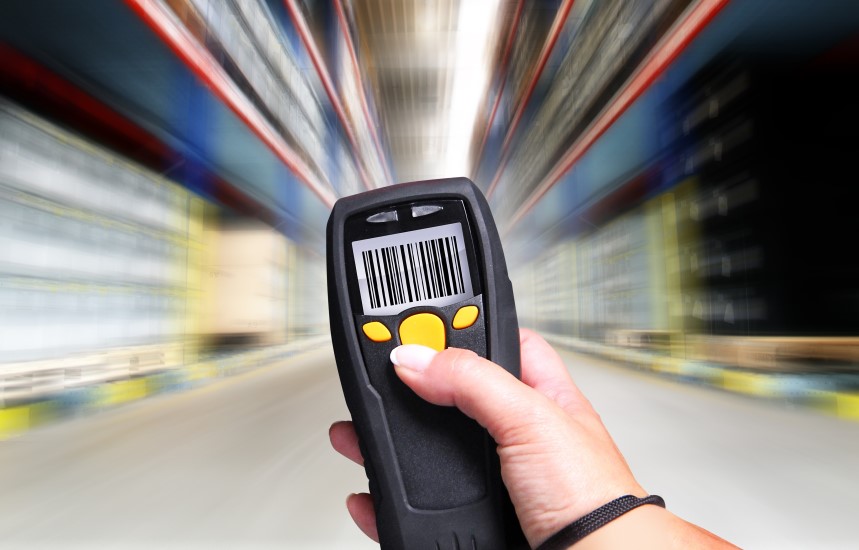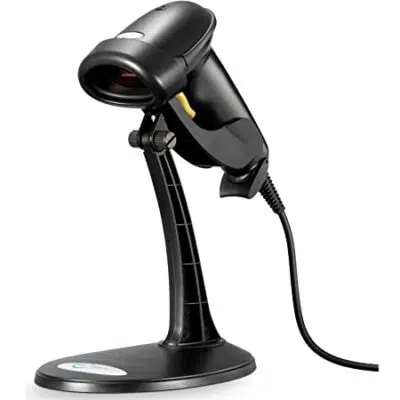Why Barcode Scanners Are Necessary for Modern Retail and Warehousing
In the quickly advancing landscape of retail and warehousing, the integration of barcode scanners has actually come to be a crucial aspect in streamlining operations and improving accuracy. By automating data entrance procedures, these gadgets not only minimize human error yet also significantly enhance inventory management and check out efficiency. As companies aim for competitive advantage, comprehending the multifaceted benefits of barcode technology exposes its vital function in enhancing resource allotment and cultivating robust provider connections. The effects of these developments increase additionally questions regarding the future trajectory of barcode innovation and its influence on sector criteria.
Advantages of Barcode Scanners
Barcode scanners use various benefits that substantially improve operational performance in retail and warehousing settings. The automation of data entry processes removes the mistakes typically connected with hand-operated input, bring about boosted precision in inventory monitoring and sales deals. With the ability to quickly check items, companies can expedite check out times, boosting the consumer experience and minimizing wait times.
In addition, barcode scanners assist in real-time data collection, enabling prompt updates to inventory degrees and sales records. This ability enables organizations to react promptly to adjustments in demand and maximize stock levels, reducing excess supply and reducing stockouts. Additionally, the assimilation of barcode scanners with stock monitoring systems improves procedures such as order satisfaction and product returns, even more enhancing operational performance.
By reducing labor prices linked with hand-operated stock administration and lessening errors that can lead to monetary losses, barcode scanners add to total productivity. On the whole, the execution of barcode scanners is a tactical financial investment that produces substantial returns in effectiveness and operational excellence.
Enhancing Inventory Management
Effective inventory monitoring is essential for preserving operational efficiency in retail and warehousing setups. Barcode scanners play a crucial duty in this process by streamlining the tracking of stock degrees, product locations, and supply movements. By automating information capture, these gadgets lessen human error, bring about even more exact stock records.
Making use of barcode scanners allows real-time visibility right into supply quantities, allowing organizations to make educated choices pertaining to reordering and supply rotation. This immediacy aids avoid overstocking or stockouts, both of which can adversely affect customer satisfaction and earnings margins.
Additionally, barcode scanning facilitates reliable supply audits. With fast scanning capacities, team can conduct supply checks swiftly, making sure that discrepancies are determined and rectified quickly. Boosted stock precision not only supports functional efficiency however also reinforces relationships with vendors, as accurate information can result in far better negotiation terms and enhanced order fulfillment.

Improving Checkout Efficiency
As customers increasingly demand quicker and much more effective buying experiences, improving check out procedures has actually ended up being a leading priority for merchants. Applying barcode scanners plays a pivotal role in this endeavor, significantly simplifying the purchase process. By enabling cashiers to scan products rapidly, barcode technology reduces the time invested in each sale, thus reducing total wait times for clients.
Additionally, barcode scanners assist in the precise identification of products, minimizing the possibility for mispricing and making certain that clients are charged properly. This efficiency not just boosts client complete satisfaction however additionally boosts the merchant's operational performance. browse around here With the capability to process multiple things in fast succession, stores can manage high volumes of purchases throughout peak shopping hours without giving up solution quality.
Furthermore, integrating barcode scanners with point-of-sale systems allows real-time inventory updates, offering beneficial insights right into stock degrees. This immediacy allows merchants to manage stock more efficiently, ensuring that prominent things remain in stock and reducing the possibility of shed sales. On the whole, the adoption of barcode scanning technology is essential for enhancing check out performance, ultimately resulting in improved client experiences and increased sales for sellers.
Minimizing Human Mistake
In retail and warehousing settings, the execution of scanning modern technology considerably minimizes human mistake throughout purchases. Typical manual access of product information is prone to mistakes, including incorrect rates, misidentified items, and data entry mistakes. barcodes scanners. Barcode scanners streamline this process by automating the capture of product data, making sure precision and uniformity
By using barcode scanners, employees can quickly scan items instead of by hand inputting information. This automation minimizes the risk of human oversight, offering a more dependable deal process. Researches reveal that mistakes in stock administration can result in costly discrepancies, impacting stock levels and consumer satisfaction. Barcode scanning mitigates these threats by boosting the precision of inventory counts and sales documents.
Moreover, barcode scanners enhance liability within the workforce. With clear information tracks created via scanning, inconsistencies can be identified and resolved promptly, cultivating a culture of accuracy. barcodes scanners. The reduction of human mistake not only boosts functional performance but additionally develops consumer count on, as buyers get the correct items at the right rates. In general, the fostering of barcode innovation is an important action toward attaining operational quality in retail and warehousing setups.
Future Trends in Barcode Technology
The evolution of barcode modern technology is poised to transform retail and warehousing procedures in the coming years, driven by advancements in automation, data analytics, and mobile integration. As sectors increasingly adopt Web Our site of Points (IoT) systems, barcode scanning will certainly become indispensable to real-time stock administration and supply chain optimization. Boosted information analytics capabilities will allow services to harness checked information for predictive analytics, improving need projecting and supply turnover.

Furthermore, the combination of expert system with barcode innovation assures to improve processes via wise recognition and error discovery. As artificial intelligence formulas examine scanned information, they can supply insights that aid protect against stockouts and overstock circumstances.

Final Thought
In conclusion, barcode scanners play a crucial function in modern retail and warehousing by boosting stock monitoring, enhancing checkout efficiency, and significantly minimizing human error. The assimilation of barcode technology not just improves operations yet likewise cultivates much better distributor connections and maximizes source allocation. As technology remains to advance, the future of barcode great post to read scanning promises further innovations that will certainly drive operational effectiveness and profitability in progressively open markets.